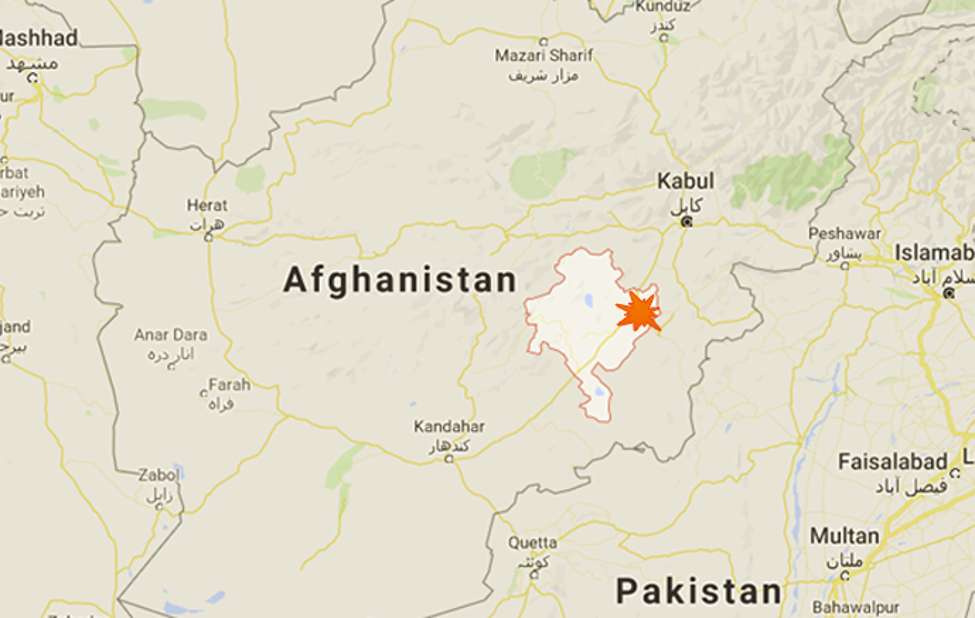Dear Survivor,
Who loves a market rattling pandemic more than CNBC? It’s a ratings bonanza allowing them to fill the airwaves with 24/7 fear, and when there isn’t a pandemic, they fill it up with fast money greed—sell, sell, sell, buy, buy, buy. Same old tune, different day.
Imagine if you could get away from it all and take a deep breath (while drinking plenty of water to keep the coronavirus out of your lungs). No one knows what the coronavirus is going to do to the markets over the short-term. What we do know is, it’s causing plenty of investors (not you of course) to be uncomfortable. A former president of Babson College used to say the key to your success is learning how to become comfortable with the uncomfortable. It’s great advice, but difficult to do.
One way to get more comfortable with your day is to read about the conversations I’m having with successful Americans just like you, whether they’re clients, prospects, or business associates. I’m on the frontlines every day gathering intelligence for you like a shellfisher gathers quahogs. Don’t think for a second, I don’t recognize how lucky I am—that I can share the bounty with you. Thank you.
Yesterday, a client of mine won the real estate lottery; he’s moving from his postage stamp patio home to a ten-acre spread for half the money. Talk about real estate arbitrage! Imagine how great he feels living debt-free, with world-class fishing and hunting minutes from his backdoor. The closest thing he’ll face to an angry HOA may be a few wild turkeys he’d gladly tangle with.
He didn’t have to change the world to live a different life, nor do you.
Sometimes a change of scenery can do wonders.
All you need to do to live the life you dream about is to believe in yourself and then decide to do it. A lot of times we know we can do better. We just choose not to.
It’s that easy.
You want to do what you’ve dreamt about, right?
Well, a client of mine is doing just that while on sabbatical, as he cleans up his gardening shed, and spends more time helping his parents get their estate in order. He’s doing the things we always think about but have a hard time actually doing. We laughed as I told him my clean garage thanks him for the inspiration.
One of the topics we covered during our conversation was “the greater fool theory of investing”—how investors believe someone will buy their stocks at a higher price. That’s a sucker’s game. That’s not investing, and right now as fears of the coronavirus infect the stock market, we’re seeing how many investors pray at that altar.
Instead of focusing on important tenets like Ben Graham’s “Margin of Safety,” the “believers” are leveraged to the hilt on margin and coming up empty.
Listen, investing isn’t supposed to be fun. It’s not supposed to be a game or a hobby or something you “pick-up” in retirement.
For many of you, your best investment has been in yourself and your career.
It boggles my mind that retirees believe they’ll pick-up investing when it’s never been part of their professional lives. Does the average retiree pick up law or dentistry?
Bad stuff happens in life. Whether it’s a coronavirus, the real estate meltdown, the tech bust, or what have you, stocks don’t always go up, up, up.
But, when you-know-what hits the fan, oftentimes, dividends continue to be paid, and you, the patient investor, can snap up more shares than you did the previous quarter.
I don’t look for the markets to do something. I don’t look to the future hoping stocks go up. There’s enough to think about today, and there’s plenty to learn from where we’ve been.
Before my client gets back to work in the C-suite running a Fortune 500 company, he’ll continue to add monthly to his stocks according to his plan—one he figured out well before he decided to clean up his gardening shed.
Coronavirus: No Panic Selling with My Clients
Stocks have lost close to 2,000 points over the last two days. Futures are up a little this morning as I write to you but that doesn’t mean anything really. Which reminds me, the less you dwell on the future, the better off you tend to be as an investor.
Remember, the pain you feel from losing money far outweighs the feeling of gains—mainly because (as) you get used to the gains, you become comfortable with your net worth.
That’s a mistake.
Much of my time working with successful Americans like you is spent talking about their lives, specifically, where they are in it.
Yes, we’ve been talking about the coronavirus, but there’s no panic selling with my clients. We’ve spent too much time preparing for times like these.
Panic wasn’t in the voices of clients I spoke with while in their car after a nice visit with friends over the weekend. We talked about how she will be celebrating her 70th birthday next weekend by throwing a Great Gatsby themed party.
Another client told me about a neat special he watched on the Newport Folk Festival which began literally across the street from my office.
Another client was about to go into the operating room, (and) getting back to work, after a week in snowy Montana.
A prospect told me he and his dad used to bond over talks about Young’s World Money Forecast over forty years ago. He’s ready to become a client to make sure his spouse is with a firm he’s known for much of his adult life, which was spent working in the Navy’s emergency room.
Another was heading home after fulfilling orders at Target. He’s been retired from his “real” job for years and will turn 60 this year. He likes the work. It helps him stay busy and supplements his income. He lives less than a mile from the store, gets up at 4:30 am, works from 5 am to1 pm and sounded plenty happy to me. That’s a pretty nice commute in California.
I could go on and on about conversations like these, all in a typical day this week. I know my clients. I know what they’re looking for from their portfolios.
No one knows how the coronavirus will impact stocks in the future.
The key for you is to focus on why you’re invested the way that you are—where it allows you to get on with your day—and perhaps stock up on some food and water.
Just don’t panic.
Read my entire series, Coronavirus Infects Stock Market here.
Survive and Thrive this Month.
Warm regards,
E.J.,
“Your Survival Guy”
- If someone forwarded this to you, and you want to learn more about Your Survival Guy, read about me here.
- If you would like to contact me and receive a response, please email me at ejsmith@yoursurvivalguy.com.
- Would you like to receive an email alert letting you know when Survive and Thrive is published each month? You can subscribe to my free email here.
- You can also follow me on Twitter, Instagram, and Facebook.
P.S. In nearby Massachusetts, 608 people are under “self-quarantine,” for possible exposure to the COVID-19 coronavirus. Steve LeBlanc of CBS Boston reports:
BOSTON (AP) — Public health officials in Massachusetts said Wednesday that they have been monitoring more than 600 people under self-quarantine in the state looking for possible symptoms of the COVID-19 virus.
Public Health Commissioner Monica Bharel said 608 people have been under self-quarantine in their homes. Of those, 377 have already completed their monitoring and have been released without symptoms.
Another 231 are still being monitored and remain self-quarantined. That monitoring typically extends over a 14-day period during which the individuals monitor their health. If there are no symptoms after that period, the individual is determined to be in the clear.
There has been a single case of coronavirus in Massachusetts. The man, who is in his 20s and a student at the University of Massachusetts Boston, had recently traveled to Wuhan, China, and sought medical care soon after his return.
“That patient is doing well and continues to recover in self-quarantine,” Bharel told reporters.
The virus and the small outbreak in the state are having an effect on Boston’s Chinatown. Beth Germano reports for CBS Boston:
Boston’s Chinatown neighborhood also continues to be hit hard by virus fears even as health officials continue to stress the risk is low. China Pearl should be bustling with customers at lunchtime, but in the near empty restaurant, the Taiwanese Consul General is networking with community members about the need for business.
Chinatown isn’t the only Boston institution facing challenges from the COVID-19 coronavirus. Boston is perhaps America’s most successful college town, and has a large population of foreign university students. Getting them home for the holidays has become an increasingly difficult prospect in the face of the coronavirus. The Boston Globe’s Deirdre Fernandes reports:
Colleges and universities are bracing for significant disruptions to their day-to-day operations from the coronavirus that could affect how they teach, what programs they offer in the summer, and how many international students enroll on campus in the fall.
On Thursday, Harvard University announced that it had barred all travel by students and faculty to mainland China and South Korea, except in rare circumstances approved by its top leadership.
Northeastern University asked its faculty and staff to fill out a survey on how they would work remotely, if necessary, so that officials could plan for technology needs. Northeastern also told its faculty to start preparing to teach classes online, in case classroom teaching has to be halted.
“The time to prepare is now,” Kenneth W. Henderson, Northeastern’s chancellor and senior vice president for learning, wrote to faculty and staff in a message Thursday. “The coronavirus (COVID-19) outbreak requires Northeastern University to be prepared and resilient to ensure learning and business continuity in the event that students, faculty and staff may not be able to come to campus or attend classes in person.”
There is also growing fear at many institutions that as a result of the near lockdown in some parts of China, there may be fewer Chinese students prepared to come to the United States in the fall. US colleges and universities are in the midst of their admissions cycle and will soon be locking in students for the next school year, but they may not have the crucial English-language tests from Chinese students to determine if they are qualified. In China, large-scale testing has been postponed due to concerns that the virus would more easily spread when groups congregate.
Additionally, recruiters who help US colleges find international students have reported consulting with fewer students in China in recent weeks and expect to see a decline of those studying abroad.
China, by far, sends the largest share of international students to American colleges and universities, nearly 370,000 students in the 2018-19 school year.
That’s right in my backyard. What should you do when coronavirus pops up in your backyard? Here’s what the CDC recommends for you at a minimum before and during a pandemic:
Before a Pandemic
- Store a two week supply of water and food.
- Periodically check your regular prescription drugs to ensure a continuous supply in your home.
- Have any nonprescription drugs and other health supplies on hand, including pain relievers, stomach remedies, cough and cold medicines, fluids with electrolytes, and vitamins.
- Get copies and maintain electronic versions of health records from doctors, hospitals, pharmacies and other sources and store them, for personal reference. Get help accessing electronic health records.
- Talk with family members and loved ones about how they would be cared for if they got sick, or what will be needed to care for them in your home.
During a Pandemic
Limit the Spread of Germs and Prevent Infection
- Avoid close contact with people who are sick.
- When you are sick, keep your distancefrom others to protect them from getting sick too.
- Cover your mouth and nose with a tissue when coughing or sneezing. It may prevent those around you from getting sick.
- Washing your hands often will help protect you from germs.
- Avoid touching your eyes, nose or mouth.
- Practice other good health habits. Get plenty of sleep, be physically active, manage your stress, drink plenty of fluids, and eat nutritious food.
P.P.S. Was Downing of U.S. Air Force’s E-11A “WiFi in the Sky” in Retaliation for Soleimani Strike?
 US Air Force spokesman Colonel Sonny Leggett has confirmed that one of the service’s four E-11A’s (11-9358) has crashed in the Afghanistan province of Ghazni. The E-11A BACN is described as a “WiFI in the sky” aircraft and is instrumental in bridging airspace and ground communications to warfighters in communications-challenged environments. The BACN fleet is comprised of four E-11A manned systems and four EQ-4B Block 20 Global Hawk UAVs (unmanned aerial vehicles). They provide lifesaving communications to soldiers on the ground and are instrumental in thousands of airstrikes. BACN’s first flight was in November 2005 at Marine Corps Air Station Miramar in San Diego, CA.
US Air Force spokesman Colonel Sonny Leggett has confirmed that one of the service’s four E-11A’s (11-9358) has crashed in the Afghanistan province of Ghazni. The E-11A BACN is described as a “WiFI in the sky” aircraft and is instrumental in bridging airspace and ground communications to warfighters in communications-challenged environments. The BACN fleet is comprised of four E-11A manned systems and four EQ-4B Block 20 Global Hawk UAVs (unmanned aerial vehicles). They provide lifesaving communications to soldiers on the ground and are instrumental in thousands of airstrikes. BACN’s first flight was in November 2005 at Marine Corps Air Station Miramar in San Diego, CA.
The E-11A aircraft carries the USAF’s vital Battlefield Airborne Communications Node (BACN), which was developed by Northrop Grumman in response to the communications shortfalls from Operation Red Wings, better known as the movie “Lone Survivor.” Serious communication challenges during this operation had ultimately led to the deaths of 19 service members.
But what was allegedly onboard might have been a higher value target. The Taliban have claimed responsibility for downing the aircraft, but Colonel Sonny Leggett said there has been no indications the crash was caused by enemy fire and that investigations are ongoing.
A U.S. Bombardier E-11A crashed today in Ghazni province, Afghanistan. While the cause of crash is under investigation, there are no indications the crash was caused by enemy fire. We will provide additional information as it becomes available.
— USFOR-A Spokesman Col Sonny Leggett (@USFOR_A) January 27, 2020
The Department of Defense issued a press release confirming the deaths of two airmen, Lt. Col. Paul K. Voss, 46, and Capt. Ryan S. Phaneuf, 30, who were both supporting Operation Freedom’s Sentinel. Unconfirmed Iranian and Russian intelligence sources are saying that CIA officer Michael D’ Andrea was allegedly aboard the flight, a claim the U.S. is currently denying. D’ Andrea oversaw the hunt for Osama Bin Laden and was the mastermind behind the airstrike on Iranian general Qasem Soleimani. Seth J. Frantzman of the Jerusalem Post says that linking the downing to the Soleimani killing would be a major development and would show that Iran is active in Afghanistan with the Taliban. He writes:
Iranian media claims that “many CIA” officers were killed in a plane crash on Monday. The Taliban initially claimed large numbers of Americans were killed, while Russian media and Iranian media then asserted that a senior CIA officer responsible for killing IRGC general Qasem Soleimani was on board. The claim has been greeted with skepticism.
Michael D’Andrea’s name began to appear in Farsi media in the wake of the Soleimani killing when articles at Mehr News and Radio Farda claimed he was involved in planning the US operation. Later on January 27 his name appeared again in rumors after the plane crash. There are many who might have an interest in spreading conspiracies about the Taliban downing high ranking US intelligence officers, nevertheless Iran’s Tasnim ran with the story quoting Russian sources that said the “assassin of Soleimani was on the plane and killed in the crash.” It claims that “Andrea is the most prominent figure in the US CIA in the Middle East. He has been in charge of operations in Iraq, Iran and Afghanistan.”
The Taliban was quoted as saying they had shot down the plane. Tasnim refers to Andrea as “Ayatollah Mike” and “the Prince of Darkness,” relying on old US newspaper clippings. Press TV of Iran has also included the report, claiming top CIA officers were killed and repeating rumors about Andrea. But the original reports from the Taliban only spoke of a plane being shot down and some CIA members allegedly being on it. The US says that an American E-11A plane was shot down in Ghazni province. Ghazni is around 900 km from the Iranian border.
Linking its downing to the Soleimani killing would be a major development and appear to show that Iran is active in Afghanistan with the Taliban, a claim that has been made in the past. Iran watches US movements in Afghanistan carefully and has met with the Taliban recently. Iran has also tried to down US drones that stray near Iran’s border.
The US has dropped a record number of bombs on the Taliban in the last year as it also tried to push them toward the peace table.
The video below shows the actual E-11A (#11-9358) that crashed in the Taliban-controlled area of Ghazni Province.
Download this post as a PDF by clicking here.
E.J. Smith - Your Survival Guy
Latest posts by E.J. Smith - Your Survival Guy (see all)
- Rule #1: Don’t Lose Money - April 26, 2024
- How Investing in AI Speaks Volumes about You - April 26, 2024
- Microsoft Earnings Jump on AI - April 26, 2024
- Your Survival Guy Breaks Down Boxes, Do You? - April 25, 2024
- Oracle’s Vision for the Future—Larry Ellison Keynote - April 25, 2024


















